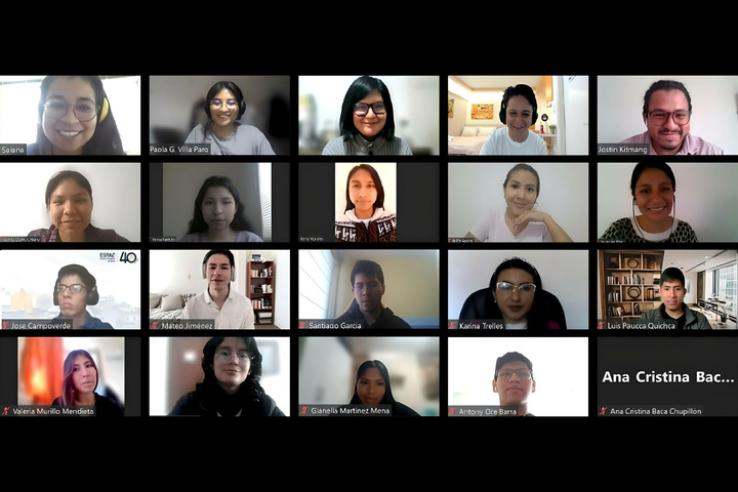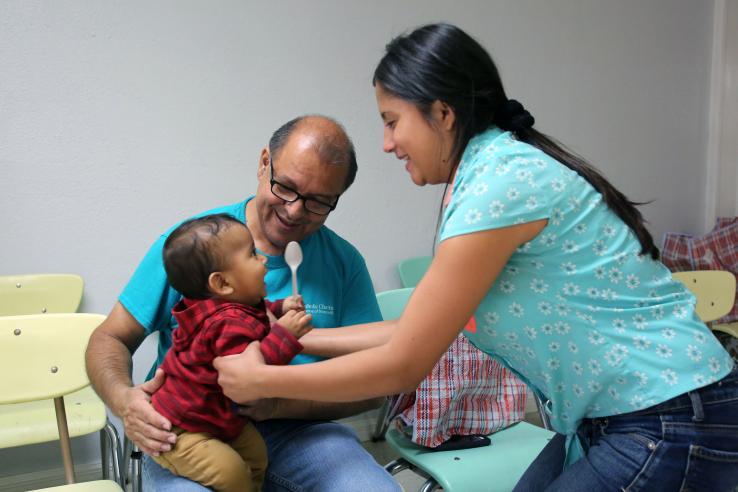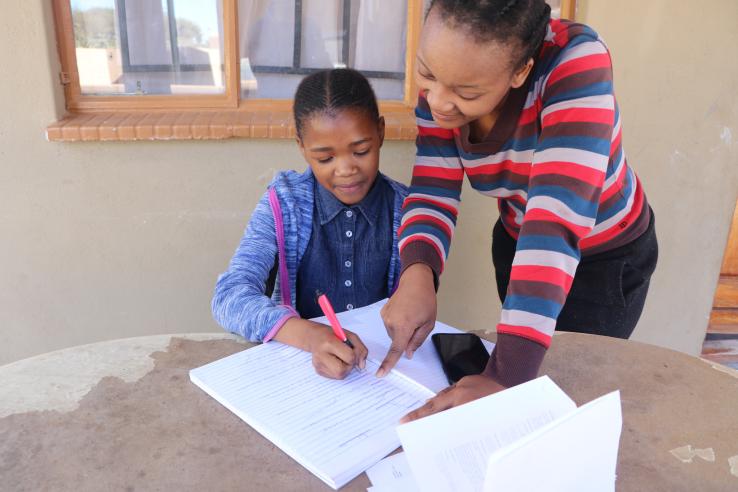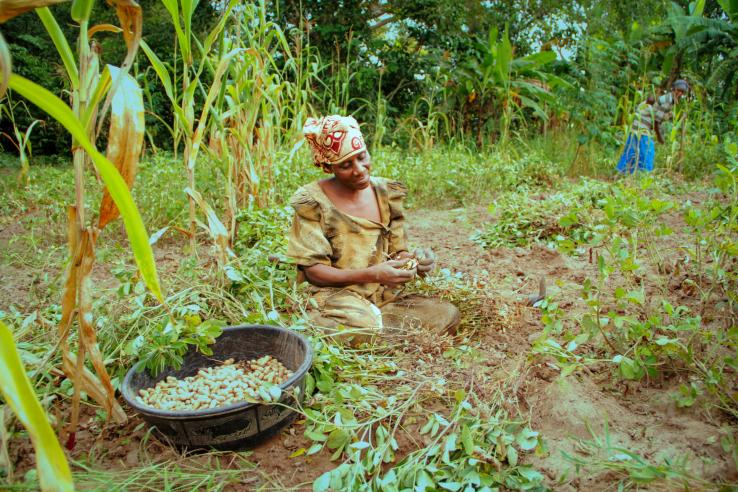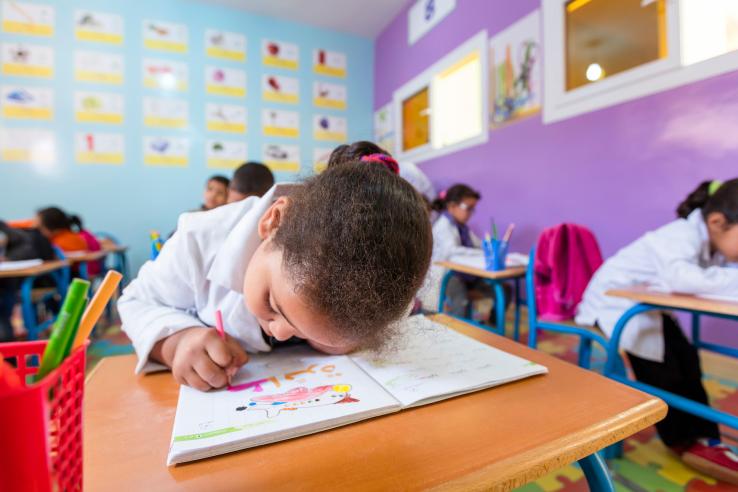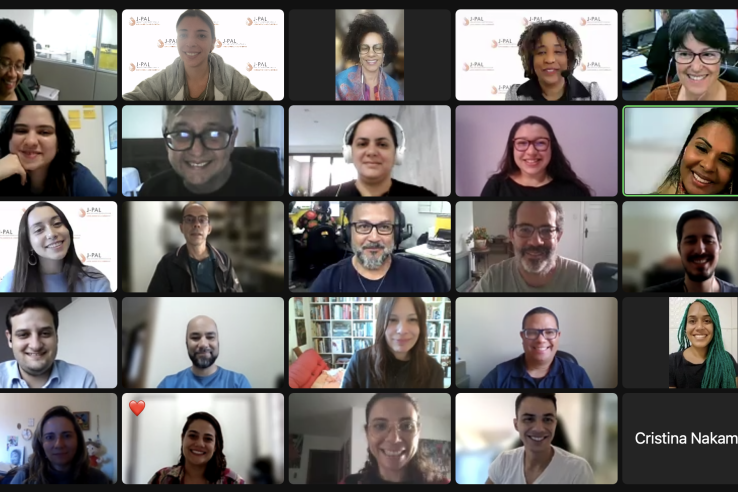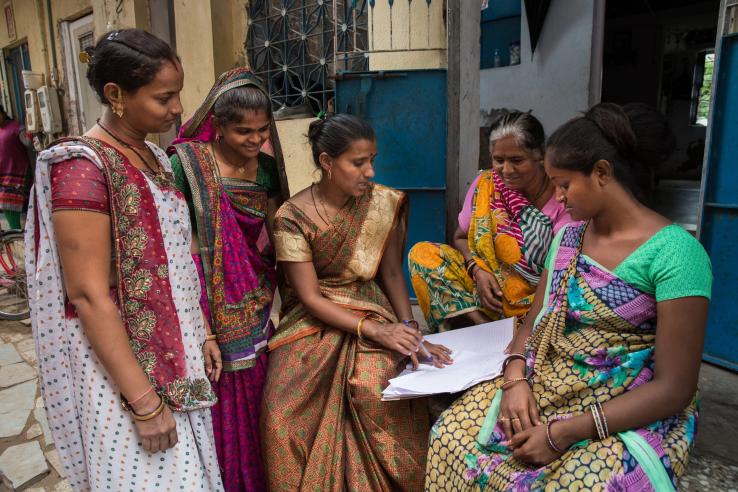Displaying 3286 - 3300 of 8491
Research Paper
File: Research paper
Research Paper
File: Research paper
Research Paper
File: Research paper
Blog
In this post, we speak with the co-founders of EconThaki, an organization created to improve diversity and inclusion in economics through information, training and mentoring in South America. Econthaki was launched by young Peruvian researchers, including Jostin Kitmang, J-PAL LAC Research Manager...
Blog
In Guatemala—one of the countries with the world's highest stunting rates and low early childhood education enrollment—several organizations and government institutions increasingly recognize the importance of improving early child development (ECD) and have accumulated relevant key lessons on ECD...
Update
J-PAL Updates
Our June 2023 Newsletter features the first of J-PAL's 20 for 20:Partner Voices blog series, the latest evidence on microcredit, and an alumni of of J-PAL and MIT’s Data, Economics, and Development Policy (DEDP) master’s program.
Evaluation
In western Uganda, researchers conducted a series of randomized evaluations that assessed the impact of introducing a combination of post-harvest services, training on agricultural best practices, and access to a market for high-quality maize on farmers’ productivity and profits. Researchers found that the extension services only intervention had little to no impacts on productivity and farmer profits.
Update
J-PAL Updates
J-PAL introduces a new cohort of Middle East/North Africa scholars and a new public policy track in the DEDP MicroMasters program. We also shine a spotlight on J-PAL Affiliated Professor, Raquel Bernal, and discuss findings related to improving mental health and low- and middle-income contexts.
Update
J-PAL Updates
J-PAL North America's July newsletter features a new policy brief on court nonappearance; new research results on effective legal representation; and an op-ed on summer jobs programs.
Evaluation
Researchers are conducting a randomized evaluation to measure a major preschool construction program underway in Morocco.
Person
Update
J-PAL Updates
The second issue of the quarterly newsletter of J-PAL LAC highlights our work promoting government partnerships for meaningful change in Brazil and Mexico. Discover the latest updates on policy-relevant research, initiatives, courses, events, resources, and more—made possible by partners, donors...
Blog
Amy Finkelstein, co-scientific director of J-PAL North America, co-authored the book We’ve Got You Covered with Liran Einav, which examines the health care system in the United States and proposes how it should be redesigned. In this post, J-PAL staff sat down with Amy to discuss how randomized...
